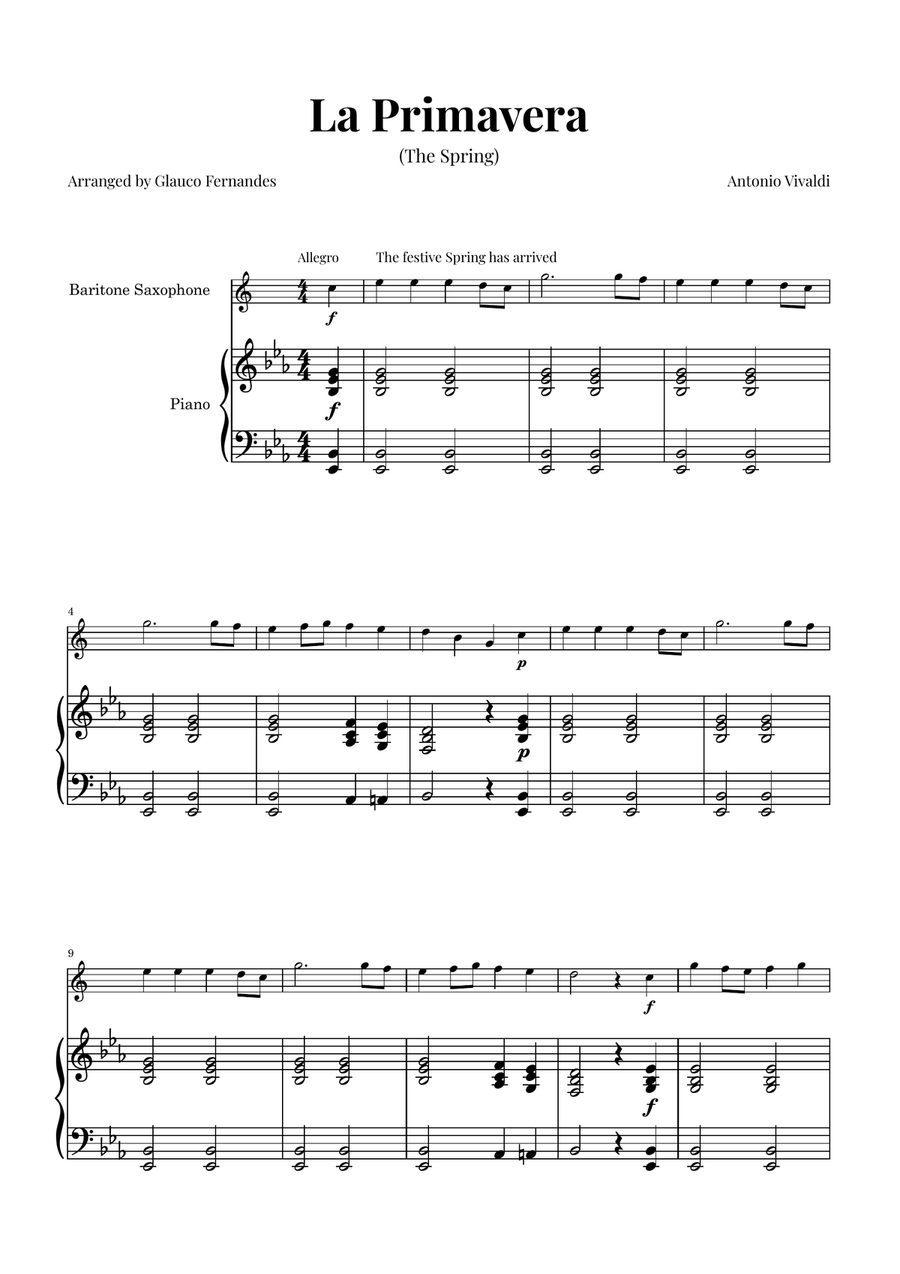Baritone Saxophone,Piano - Level 2 - Digital Download SKU: A0.1409054 Composed by Antonio Vivaldi. Arranged by Glauco Fernandes. Baroque,Chamber,Classical,Instructional,Wedding. Score and part. 3 pages. Glauco Fernandes #991659. Published by Glauco Fernandes (A0.1409054). Dive into the exuberance of the Baroque era with our exclusive arrangement of Antonio Vivaldi's La Primavera (The Spring) from The Four Seasons. Tailored for musicians who are honing their skills at the intermediate level, this arrangement captures the joyful and rejuvenating spirit of spring, making it a valuable addition to the repertoire of both developing students and professionals seeking practicality and versatility in their performances.For educators and music teachers, this score represents an excellent pedagogical tool, introducing students to Vivaldi's distinctive style and the depth of Baroque music in a way that is both challenging and accessible. It offers an opportunity for technical and expressive growth, enriching students' repertoire with one of the most celebrated works of classical music.Beyond being ideal for those advancing musically, this arrangement is also extremely useful for professional musicians looking to expand their repertoire with pieces that combine elegance and simplicity for special occasions, such as weddings. The iconic nature and timeless beauty of La Primavera ensure its warm reception at any event, providing performers with the chance to shine with a work of recognized mastery.Thus, our arrangement emerges as a versatile choice, promising to enrich both the musical learning of students and the repertoires of professional musicians with a piece that is both accessible and deeply expressive. It maintains the essence and charm of Vivaldi's original composition, promising to be an enriching experience for all involved.Tags: intermediate sheet music, Antonio Vivaldi, The Four Seasons, La Primavera, Baroque music, music education, versatile arrangement, repertoire for events, wedding music, musical growth, classical music.
